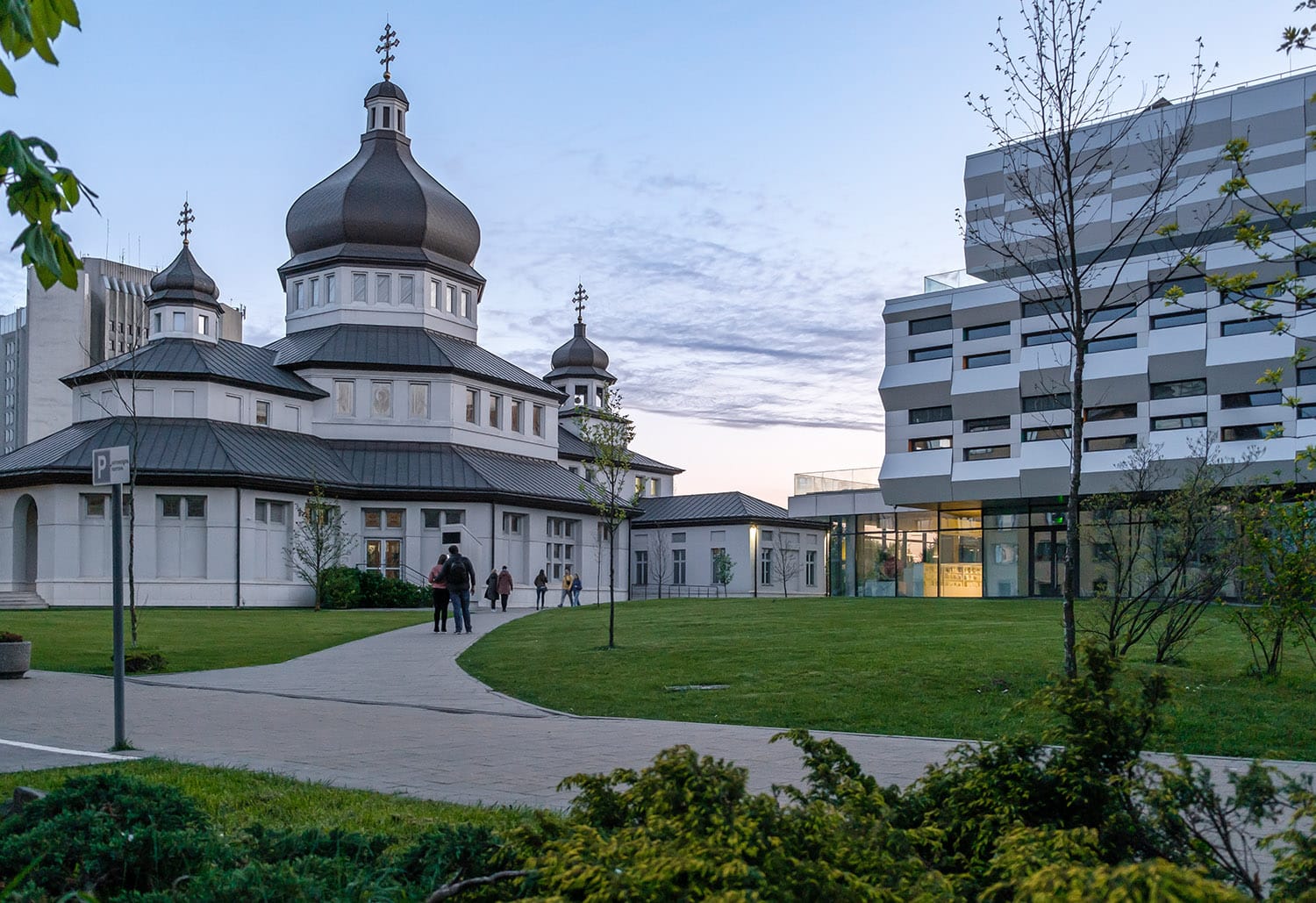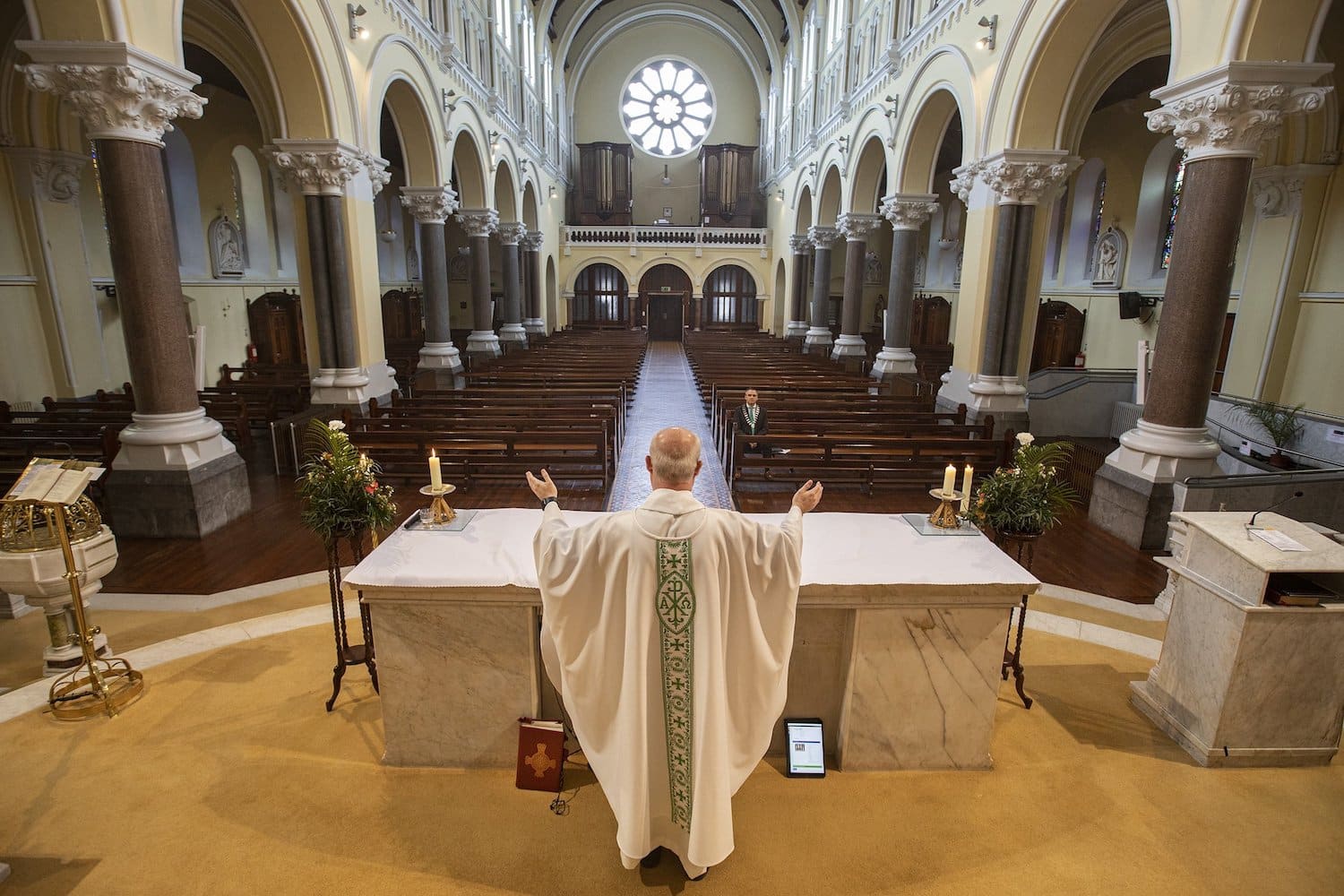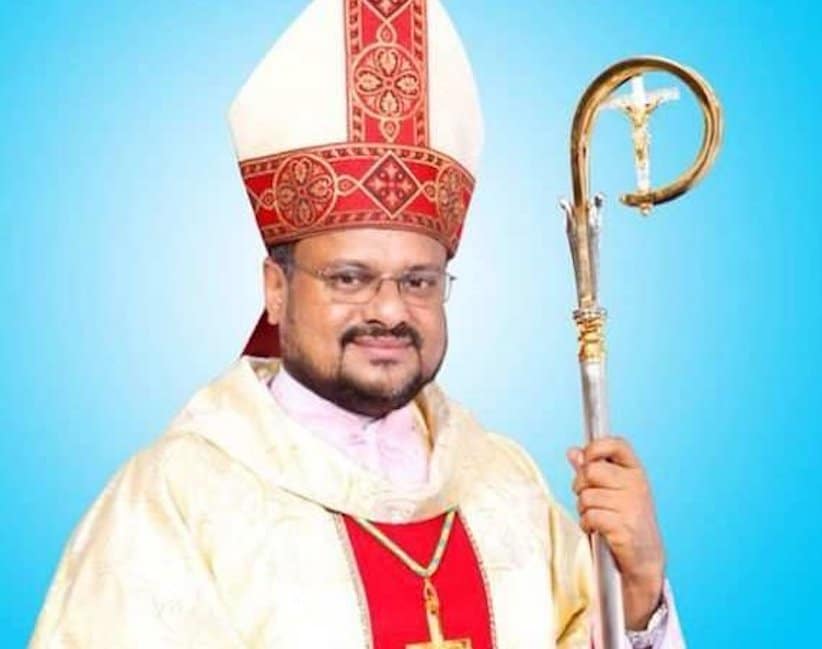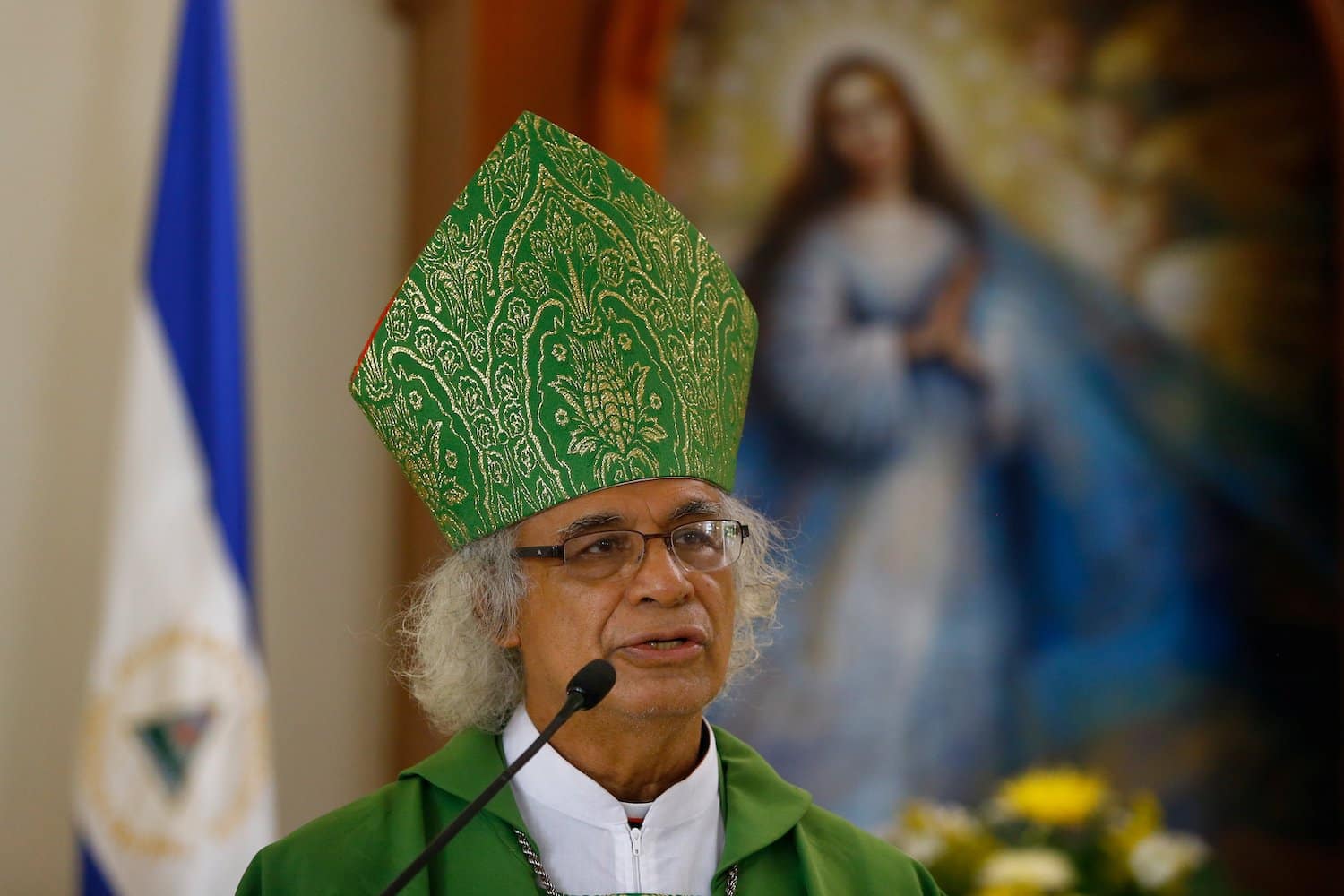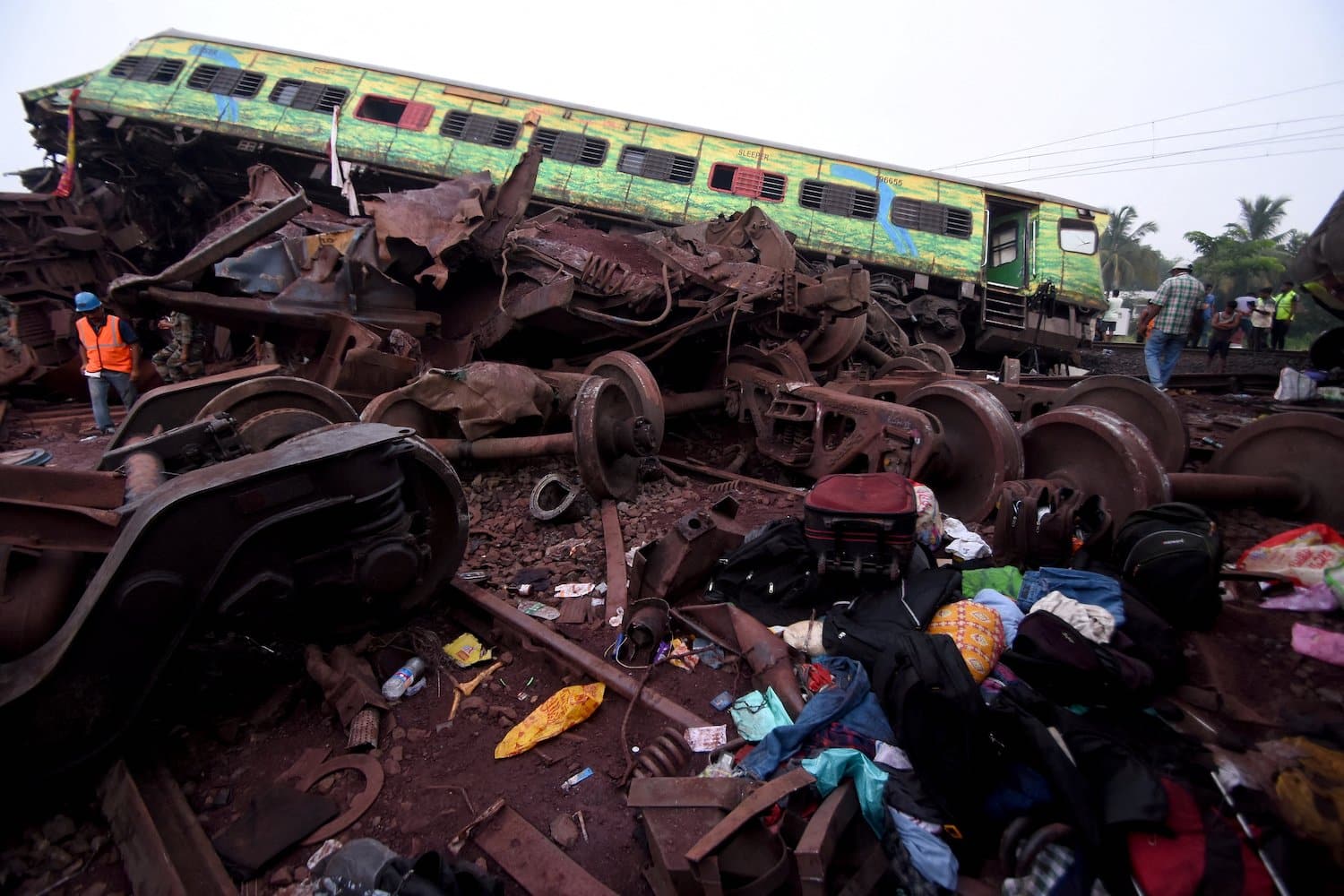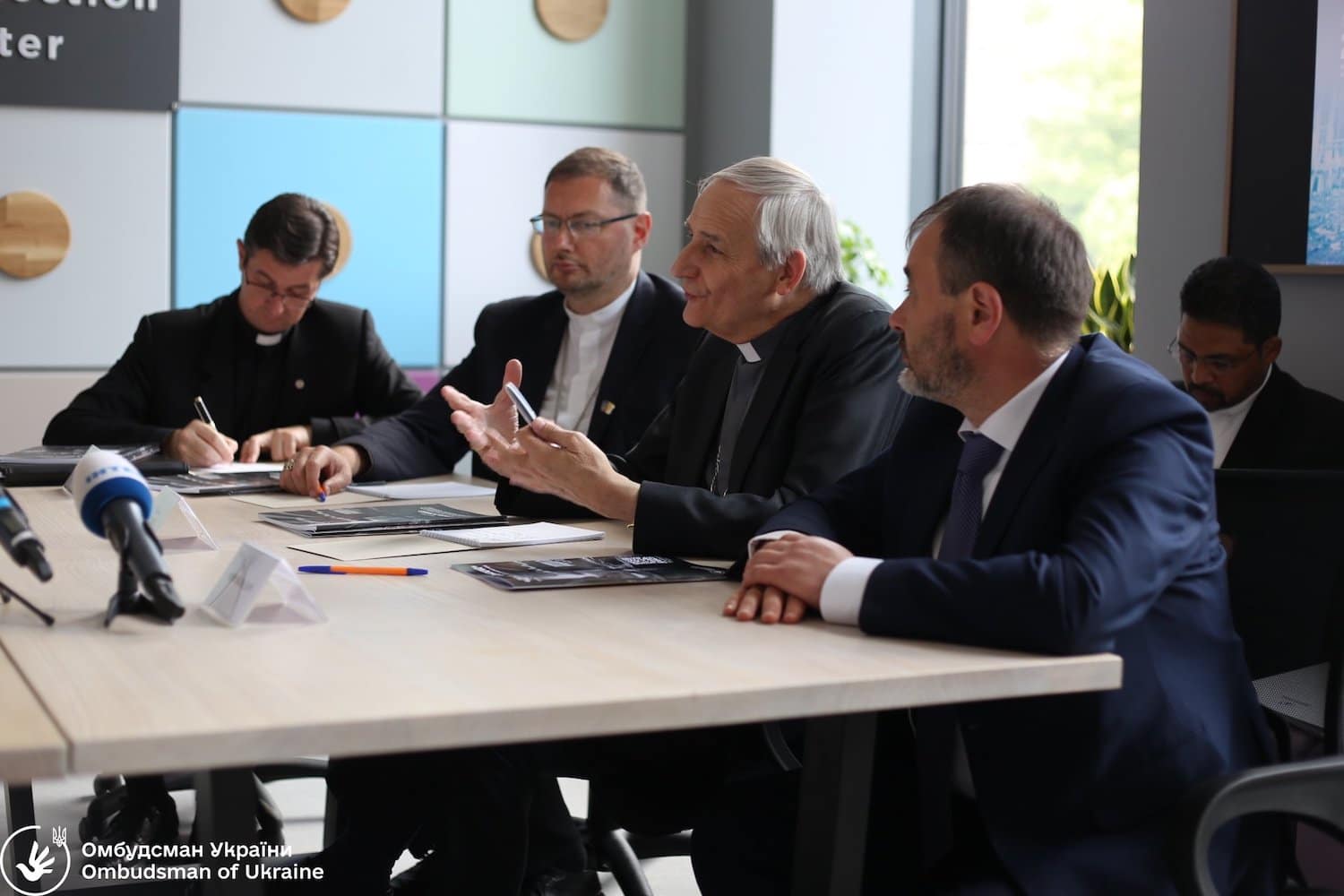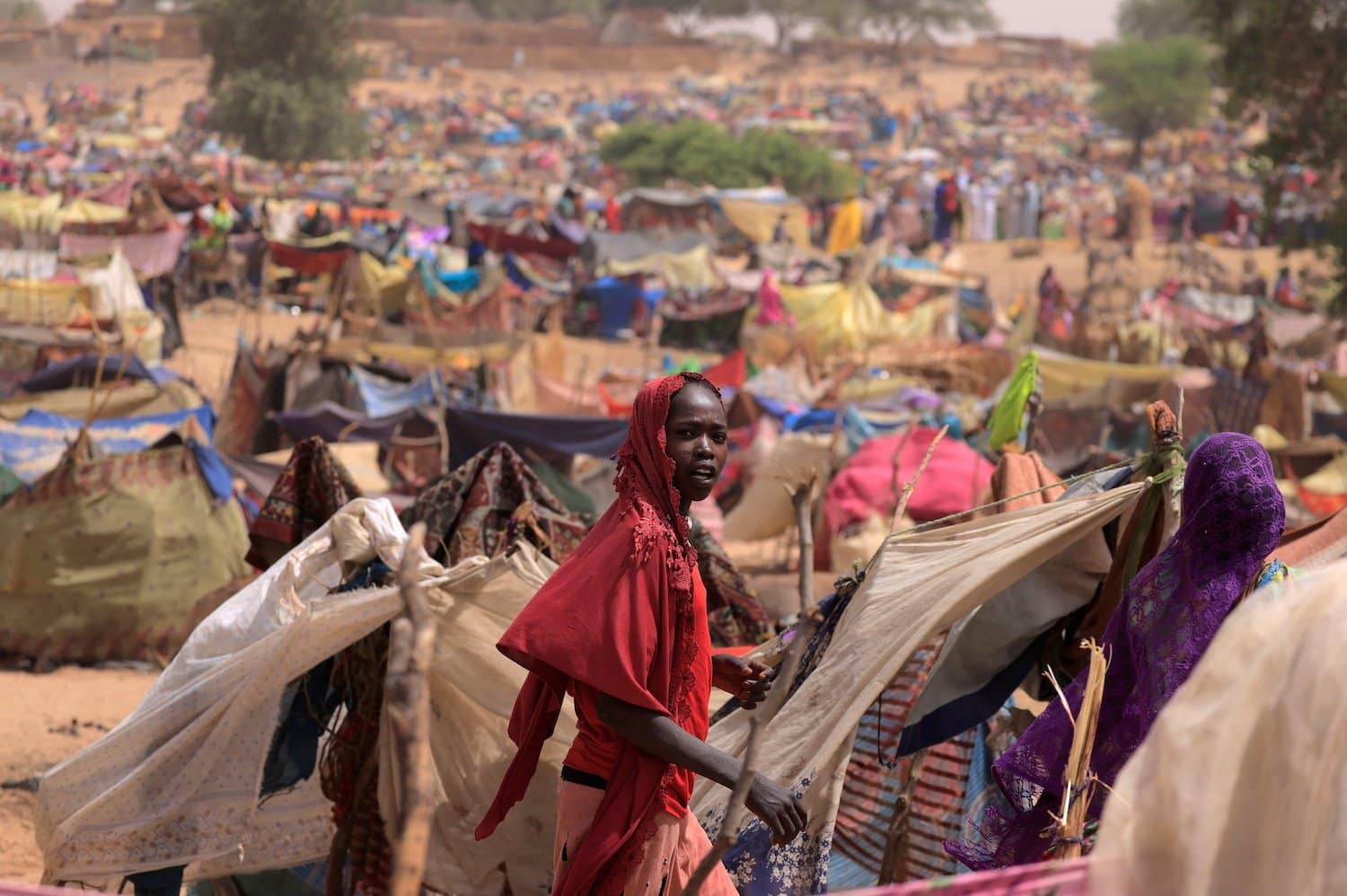When Russia invaded her home country of Ukraine, Daryna Behen was studying abroad in the United States. Her university — Ukrainian Catholic University (UCU) in Lviv — halted classes for a month before resuming.
“It was challenging to study in that period,” the 20-year-old from Lviv told Our Sunday Visitor, while remembering the complete chaos. Still, she jumped at the first opportunity to return home.
That opportunity came in May 2022, three months after the ongoing invasion began.
Daryna returned to a new environment — one where air-raid alarms interrupt studies, where classes take place in bomb shelters, where the power goes out, taking the light with it. It’s an environment where students worry about their classmates and teachers who now fight as soldiers. It’s a time when they attend more funerals than weddings.
According to the Office of the United Nations High Commissioner for Human Rights, Ukraine suffered 23,606 civilian casualties, with 8,791 killed and 14,815 injured, from Feb. 24, 2022, to May 7, 2023,
The actual numbers, the U.N. believes, are considerably higher.
Importance of education
At the same time, the United Nations estimates that more than 8 million people have fled Ukraine, with nearly 6 million displaced or stranded.
Students like Daryna remain. She and two other UCU students shared their experience of continuing education during the war with Our Sunday Visitor. They saw education as vital for their future — and the future of their country.
“We understood that our education will be necessary for the rebuilding [of the] country after the victory,” Yaroslav Volianinov, a 19-year-old theology student, said.
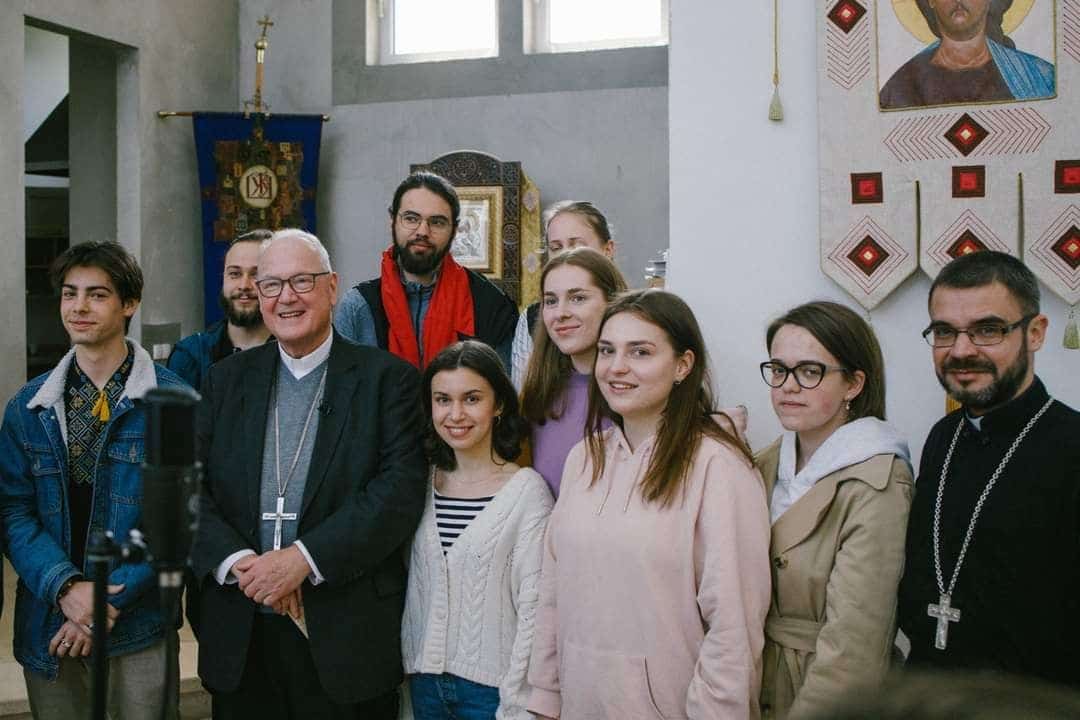
Together, they attend UCU, the first Catholic university to open on the territory of the former Soviet Union and the first university opened by one of the Eastern Catholic churches. Ahead of the university’s inauguration in 2002, Pope John Paul II blessed its cornerstone.
UCU, a self-described academic community living the Eastern Christian tradition, exists to form leaders “for the glory of God, the common good, and the dignity of the human person.” Today, according to a report for 2021-22, 2,215 undergraduate and graduate students study there.
These students live a new normal.
“If we take the general process of studying, then everything has stayed the same,” Daryna explained, “but many details have changed.”
She and her classmates shared how, in addition to their studies, they fight the war in their own way. Instead of tearing them apart, it made them grateful for what they have. Instead of crushing their faith, it drew them closer to God.
These are their stories.
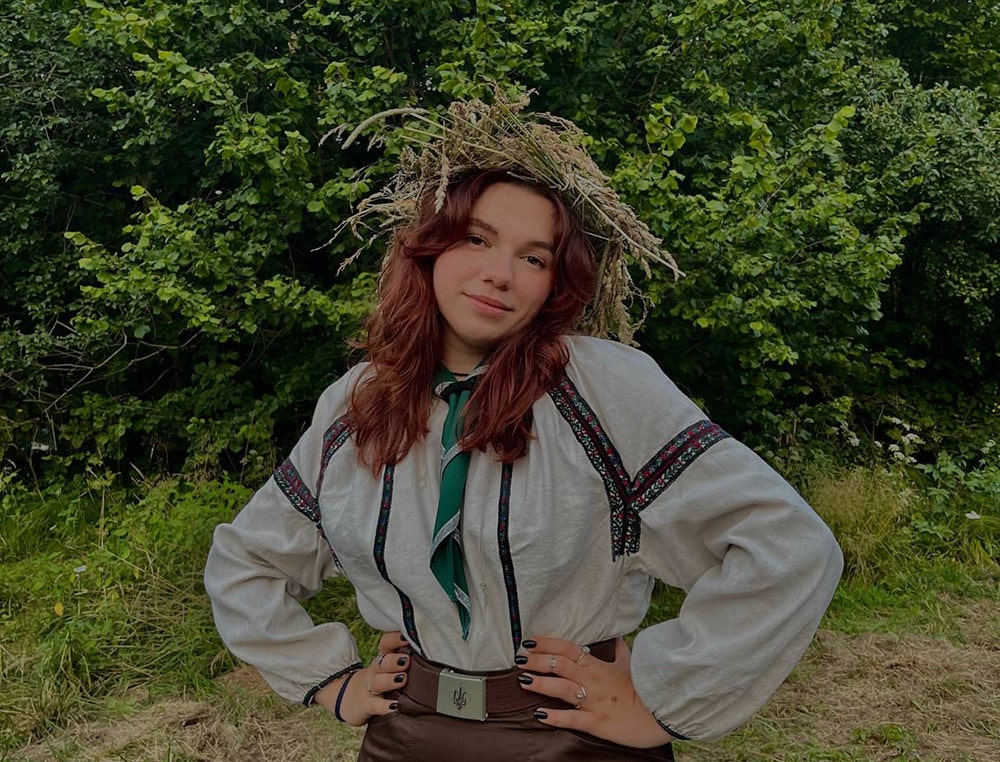
Daryna Behen
Daryna, a fourth-year student majoring in social work at UCU, described life at school. Her typical schedule includes work and studying, with two to three classes in the afternoon.
War, she said, makes things unpredictable.
“We study on campus almost as usual, but when there is an air alarm, our class is either canceled or held in a bomb shelter or online,” she said.
Students navigate power outages, and, along with them, a loss of light, internet and even the ability to cook. A generator installed on campus, Daryna said, makes it possible to study when there is no light at home.
Some professors hold classes online because they relocated abroad. Other teachers — and classmates — left to fight as soldiers.
“More than 50 people from the UCU community are fighting at the front: teachers, students, graduates and friends of UCU,” Daryna counted. “Almost every week, we receive sad news about the death of someone from our community.”
She called the loss excruciating.
“I was at more funerals than at any happy events like birthdays, or weddings,” she said. “The moment of fear for one’s life, for the citizens of one’s country, and the feeling of grief for those who are no longer with us, is what affects the university community the most.”
Every student supports Ukraine, she said, from helping refugees and raising money for the military to connecting people with basic necessities, from hygiene items and food to clothing and housing.
For Daryna’s part, she provides social counseling for internally displaced persons in hospitals.
Her day includes some normalcy: After classes, she either goes home and works, meets with friends, or attends a meeting with kids as part of the Ukrainian scouting organization, PLAST. She also finishes homework.
The conditions of war, she said, tested her faith.
“I constantly ask myself why all this is happening to us,” she admitted.
“It’s hard for me to admit it to myself, but when I see a video where the head of a Ukrainian soldier is cut off, it’s hard for me to believe in God and justice,” she added. “But then I remember that these are the actions of men, not God, and salvation comes from God.”
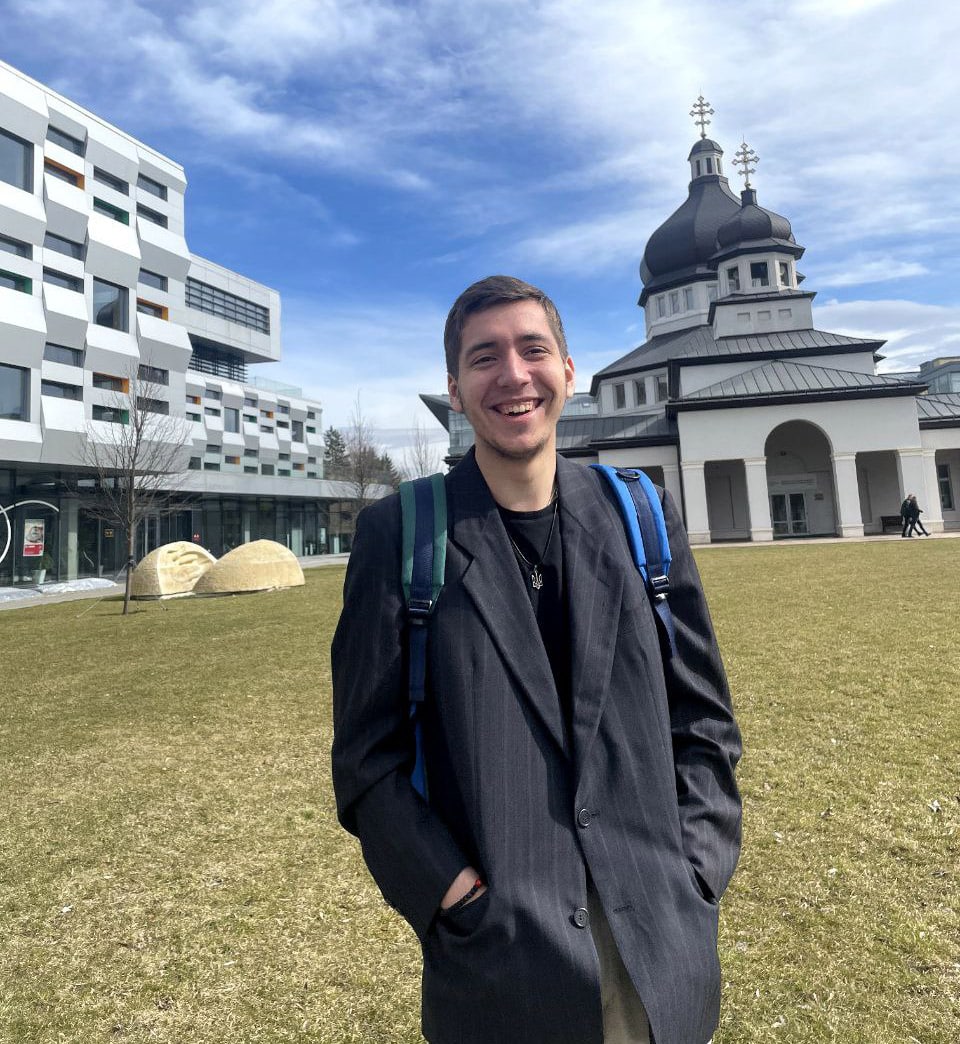
Yuriy Shkola
As a first-year student, Yuriy started at UCU during the ongoing invasion.
“Even though we are living in a new reality with a full-scale invasion of Ukraine, UCU leads an active life,” the 20-year-old philology student from Kryvyi Rih stressed.
He described a typical week, beginning with two to four classes each day. He belongs to the student choir, where he sings the Divine Liturgy. Living on campus, he attends student activities in the evening when he is not studying.
Yuriy also volunteers with PLAST. He enjoys spending time with kids and wants to contribute to the next generation, especially now, he said.
Following a routine during war, he cautioned, only goes so far.
“Sometimes it doesn’t matter what you have planned,” he said. “Air-raid alerts are not as often in the Lviv region as, let’s say, in my hometown, but you still don’t expect them.”
He highlighted UCU’s response to the war. The students, he described, sprang into action at the start and remained active ever since.
“Students organized a center in the university where they were collecting and providing aid for people in need, our soldiers; students were raising money to get things that our army needs,” he remembered, adding that UCU’s dormitory sheltered displaced people.
Others joined the army and died fighting for their country. In their memory, UCU names scholarships after those lost, he said, adding that his student choir also prays for them.
Yuriy revealed that he discovered his faith at UCU.
“Before joining the university, I was curious about it,” he shared. “Still, I was not attending church regularly and knew only a few things about being Christian, but most of them were not even true.”
Music, he said, led him to faith. When he first enrolled at UCU, he sang in the U.S. with a choir there and learned more about the Ukrainian Greek-Catholic Church’s traditions. Now, he not only sings in UCU’s student choir but also with UCU’s Taize band.
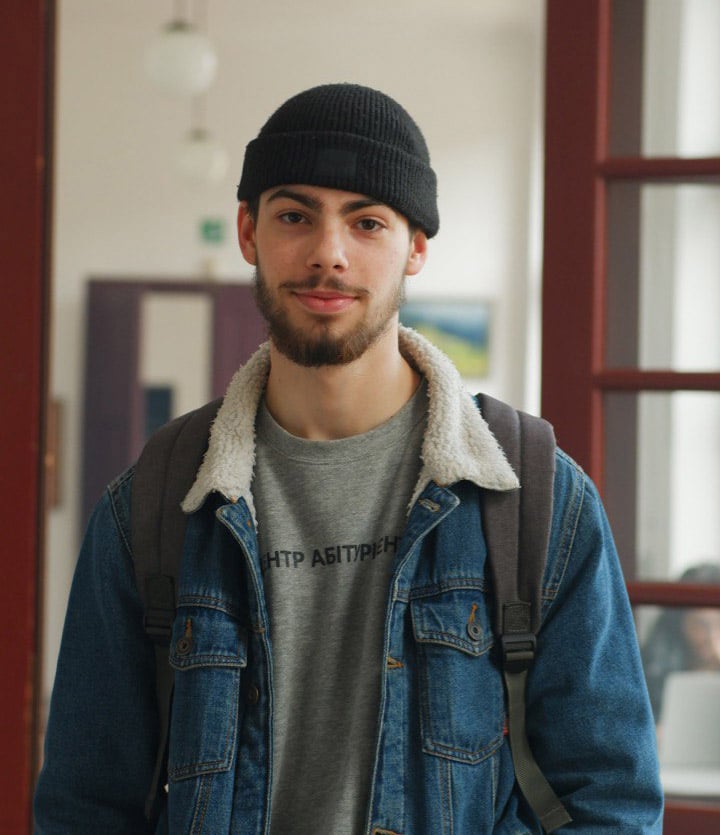
Yaroslav Volianinov
In his second year at UCU, Yaroslav described studying in the current environment.
“It is a great responsibility to study at UCU during the full-scale Russian invasion,” the student from Chernihiv, a city on the Ukrainian border with Russia and Belarus, said.
He spends his time studying and working at the UCU admissions department. He also sings the Divine Liturgy with the student choir.
Life, he said, continues.
“Studying in wartime, due to constant air alarms, feels completely different, but we are used to it,” he said, adding that students try to continue as usual.
He said that the war impacted his free time. Now, he devotes more time to volunteering and other responsibilities, particularly after his father left to defend Ukraine and brought his grandmother to Lviv. Yaroslav visits her twice a week.
He emphasized that every Ukrainian is fighting, from donating or volunteering to going to the front lines.
UCU in particular, he said, welcomes refugees. Students run a humanitarian center and help with delivering provisions from abroad to the front or the front-line cities. They do everything from cooking to weaving camouflage nets.
He talked about how the university and war strengthened his faith.
“I felt that God not only listens, but also [heard] my prayers,” he said. He witnessed this when his mother and sister escaped their city that was under fire, when his father answered after several days of silence, when his father rescued his grandmother recovering from a stroke.
“How could you not believe when he hears you?” Yaroslav concluded.
He, along with Daryna and Yuriy, expressed gratitude for Catholic support from outside of Ukraine as the war continues.
“The war taught me to be grateful. For everything, even a few minutes of conversation with people you haven’t seen in a year or longer,” he said. “I thank you. For help, for support, for prayer. We feel it and it is incredibly valuable to us.”

